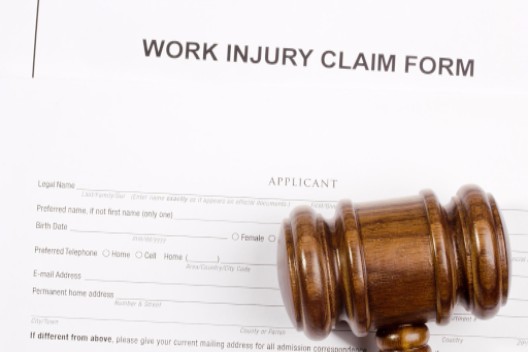
What Not To Do While on Workers’ Comp in Colorado
Avoid these common mistakes that could hurt your workers’ compensation claim in Denver
As experienced workers’ compensation attorneys in Denver, we’ve encountered many heartbreaking cases over the years where workers with legitimate injuries have inadvertently jeopardized their claims, leading to reduced benefits or outright denials.
Unfortunately, navigating the aftermath of a work-related injury can be fraught with complexities and pitfalls. From the critical initial steps immediately following an injury to the nuanced details of managing a claim, the path to securing rightful compensation is often laden with potential mistakes that can have significant consequences.
In this article, we aim to shed light on the top mistakes workers make after sustaining a work-related injury in Colorado. Our goal is to arm you with the knowledge to avoid these common errors, ensuring that you not only protect your rights but also maximize the benefits you’re entitled to.
Through our expertise and firsthand observations, we’ll guide you through the most common mistakes that every injured worker should avoid to increase their chance of a successful claim.
Mistake #1: Failing to report the injury to your employer
It’s important to understand that in most cases, failing to report a work-related injury within 10 days in Colorado can lead to a denied workers’ compensation claim. However, workers are encouraged to report their injuries to their employers in writing immediately after the accident whenever possible.
Why?
Waiting to report an injury can cause employers and insurers to question the authenticity of the injury, potentially claiming it occurred outside of work or that its severity is being exaggerated.
For instance, a construction worker who delays reporting a twisted ankle for 2 weeks might face skepticism about whether the injury genuinely happened on the job or during their own time, especially if the pain only prompts them to report it after the fact.
Immediate reporting is crucial for maintaining the credibility of the claim and ensuring that the incident is documented accurately.
Mistake #2: Not seeking immediate medical attention
Without prompt medical evaluation and documentation, it becomes challenging to prove the extent and seriousness of the injury, as well as to establish a clear link between the injury and the workplace accident.
Furthermore, seeking prompt medical attention is crucial for the treatment and recovery process. Delays in treatment can lead to complications and prolonged recovery times, which can further complicate a workers’ compensation claim.
In some cases, insurers or employers might argue that delayed medical treatment contributed to the severity of the condition, potentially reducing workers’ compensation benefits.
For instance, a restaurant worker who initially brushes off a seemingly minor laceration could end up facing serious health issues if an infection develops and worsens over time without proper medical intervention. This could make it harder to prove that the original workplace incident was the sole cause of the injury’s severity.
Injury, drug testing and your workers’ comp benefits
Learn about your rights regarding drug testing after a work injury and how a positive drug test could affect your workers’ comp benefits in Colorado.
Mistake #3: Not following medical advice
When an injured worker disregards or only partially follows the treatment plan prescribed by their health care provider, it sends a signal to the insurance company that the injury might not be as serious as claimed.
This non-compliance can be interpreted as evidence that the worker does not require the claimed level of medical attention or compensation, thereby weakening the claim.
For example, if the authorized treating physician recommends physical therapy sessions for a back injury and the employee fails to attend these sessions, the insurer might question the legitimacy of the claim or argue that the employee’s recovery is not a priority, affecting the outcome of the compensation process.
Mistake #4: Posting on social media during recovery
Insurers and employers often monitor claimants’ social media profiles for evidence that contradicts the severity of the reported injury or suggests a level of physical activity inconsistent with the injury claims.
For example, if you post pictures of a camping trip or what seems like an innocent trip to the park with your child while your workers’ compensation claim for a knee injury is active, it could be used by the insurance company as evidence to argue that your injury is not as debilitating as you claim, leading to a reduction or denial of benefits.
It’s crucial for anyone pursuing a workers’ compensation claim to be mindful of their online presence and consider the potential implications of their posts. In most cases, it’s best to take a break from social media altogether when applying for or receiving workers’ comp benefits.
Mistake #5: Not disclosing previous injuries or pre-existing conditions
Not disclosing previous injuries or conditions when filing a workers’ compensation claim can significantly jeopardize the claim’s success. Insurance companies and employers might view the omission as an attempt to misrepresent the cause of the current injury, suggesting that it may be due to a pre-existing condition rather than a workplace accident.
For instance, if an employee in Colorado fails to disclose a prior back injury and then files a claim for a back injury sustained at work, the employer’s insurance company could argue that the injury already existed and was not caused by a workplace accident, potentially leading to a denial of the claim.
It’s important to understand that if you have a pre-existing condition that is exacerbated by a work injury or your duties at work, you may still be eligible for workers’ comp benefits, so it’s best to be upfront from the beginning to ensure that the assessment of your claim is both accurate and fair.
Mistake #6: Starting a side business or taking a new side job without disclosing it
Starting a side business or taking on a new job without disclosing it can undermine a workers’ compensation claim, especially if the claimant is receiving benefits for being unable to work or for lost wages. This nondisclosure might be perceived as an attempt to deceive the insurance company or employer about the claimant’s true physical capabilities and financial needs.
For instance, if you’re receiving workers’ compensation benefits for a repetitive stress injury because you’re unable to perform your regular job duties, starting a physically demanding side job or business could be seen as evidence that your injury is not as limiting as stated. Consequently, the insurance company might reevaluate your eligibility for benefits, leading to a possible reduction or termination of those benefits.
Additionally, earnings from a side job or business could legally affect the amount of compensation you’re entitled to, as workers’ compensation benefits take into account your earning capacity and financial losses due to the injury.
If these earnings are not reported, it could not only affect the benefits but also expose you to accusations of fraud, which might result in legal penalties, including the requirement to repay benefits or face criminal charges.
Transparent disclosure of all income sources is essential to maintaining the integrity of the claim and ensuring that benefits are calculated and provided fairly based on the true impact of the workplace injury.
Mistake #7: Not fully understanding what workers’ comp benefits are available
Many workers in Colorado may not realize that they are entitled to more than just coverage for their immediate medical bills. Workers’ compensation can also provide benefits for lost wages, rehabilitation costs, and compensation for permanent disability or vocational retraining if the worker cannot return to their previous job due to their injuries.
Awareness and understanding of all available benefits are crucial for fully realizing the support that workers’ compensation can offer, highlighting the importance of seeking comprehensive legal advice and guidance during the claim process.
What benefits are available in a Colorado workers’ compensation claim?
Learn about the different types of workers’ comp benefits available to injured workers in Colorado.
Mistake #8: Accepting a settlement without talking to an attorney
Accepting a settlement offer without consulting an attorney can severely limit a claimant’s compensation in a workers’ compensation case.
An attorney specializing in workers’ compensation can provide invaluable insight into the fairness and adequacy of the settlement offer, considering the full extent of the injury, the medical care required (both current and future), and the impact on the claimant’s ability to work.
Oftentimes, employees are quick to accept a low settlement offer for an injury, assuming it will cover their needs and not realizing they have the right to negotiate a higher settlement amount. Without legal advice, they may not realize that the offer falls far short of covering their long-term medical treatments and future income loss.
This oversight can leave the claimant facing financial difficulties down the line, especially if their injury leads to unexpected complications or prolonged recovery periods that weren’t accounted for in the settlement.
An attorney could negotiate a comprehensive package that includes provisions for potential future expenses and considerations for any permanent impact on an injured worker’s earning capacity. Without this expertise, a worker risks missing out on critical financial support that accurately reflects the true cost of their injury and its impact on their life.
Get help from an experienced Denver workers’ compensation attorney
Navigating the complexities of a workers’ compensation claim can be daunting, especially when you’re focused on recovery and facing potential financial strain. The Babcock Law Firm is dedicated to guiding you through this process, ensuring you understand your rights and the full extent of benefits you’re entitled to.
Our experienced Denver work injury attorneys have a proven track record of success advocating for injured workers in Westminster, Arvada, Thornton, and across Colorado, securing the compensation and support they need to facilitate their recoveries.



